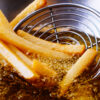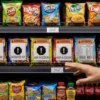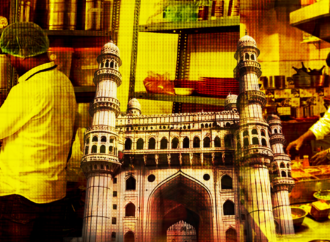 Food Manifest
Food Manifest
The house of resource for food safety.
Blog 1 Column Left Sidebar
- Home
- Blog 1 Column Left Sidebar
Latest Posts
-

-

-

-

-

FSSAI Extends Deadline for Meat Sausage Standards
- A to Z, Food Hygiene, Food Safety, News
- February 10, 2026

Health Hazards Uncovered in Hyderabad: Food Safety Task Force Inspects Santosh Nagar Restaurants0
- Food Hygiene, Food Safety, News
- November 8, 2024
Report On November 2, 2024, a food safety task force inspected businesses in Hyderabad‘s Santosh Nagar area, identifying numerous violations at three dining establishments. Unhygienic Conditions at Hotel Sri Raghavendra Udupi At Hotel Sri Raghavendra Udupi, inspectors noted stagnant water, dirty refrigerators, a cockroach infestation, uncovered trash bins, and mouldy ginger in storage. They described
READ MORE
Health Experts Urge FSSAI to Reinstate Warning Label on Iron-Fortified Foods0
- Food Laws, Health & Wellness, News
- October 16, 2024
Report Experts warned the FSSAI in a letter that removing the cautionary label, mandated after a scientific evaluation, “puts individuals with these genetic blood disorders at risk of harm to their health and overall well-being.” Health experts urged India’s top food regulatory body to revoke its order to remove the required warning label on iron-fortified
READ MORE
Health Department Cracks Down on Food Safety and Plastic Usage in Ottapalam, Palakkad0
- A to Z, Event, Food Hygiene, Food Laws, Food Safety, Health & Wellness, News
- January 11, 2025
Report The Health Department has stepped up its efforts to ensure food safety, eliminate the use of banned plastic, and address sewage pollution in East Ottapalam. in Palakkad. During recent inspections, officials identified several violations and imposed fines on multiple establishments. They penalized three restaurants, with two fined for storing food in unsafe conditions and
READ MORE
Health Department Confiscates Expired Food Items in Thrissur During Routine Inspections0
- Food Hygiene, Food Safety, News
- November 21, 2024
Overview In Kerala, Thrissur district Corporation’s health department during Wednesday’s inspections, confiscated expired food items from five hotels. Mayor M.K. Varghese said the increase in food safety enforcement stems from intensified efforts, including bi-weekly inspections. Hotels Fined for Violating Food Safety Regulations Health officials confiscated meat and vegetarian dishes from Bay Leaf in Ramavarmapuram, Navya
READ MORE
Health Crackdown in Malappuram: Catering Unit Closed0
- A to Z, Food Hygiene, Food Safety, Health & Wellness, News
- September 6, 2025
Key Update The municipal health department in Malappuram conducted a large-scale inspection of catering units and food outlets across Kottakunnu, Kizhakethala, and Munduparamba. During the operation, officials seized and destroyed numerous unhygienic and unsafe food items, including spoiled pickles, contaminated curry mixes, and unsafe meat products. Inspectors found that workers left food uncovered on dirty
READ MORE





